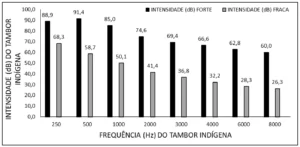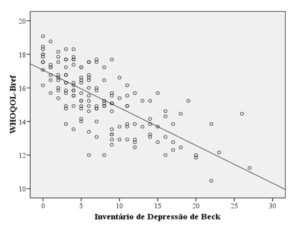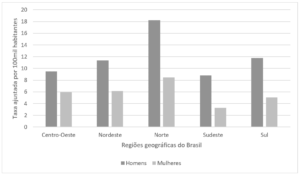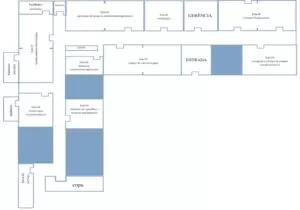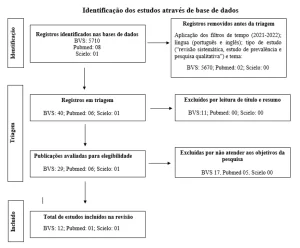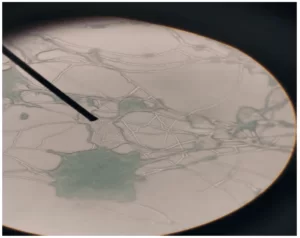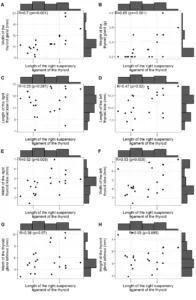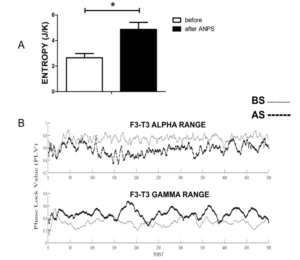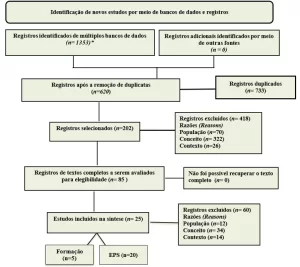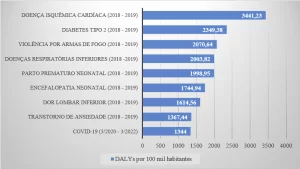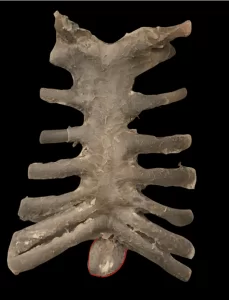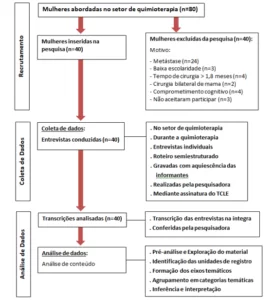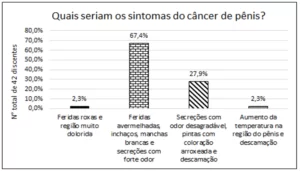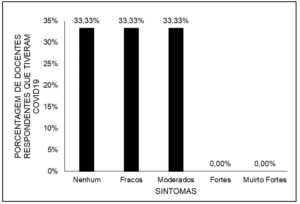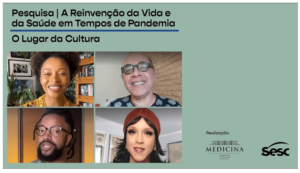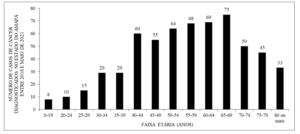ORIGINAL ARTICLE
RESENDE, Larissa de Oliveira [1], LEMOS, Rayla Amaral [2], BAQUIÃO, Ana Paula de Sousa Silva [3], BITTENCOURT, Jaqueline Ferreira Ventura [4], BONOTO, Roberta [5], CARVALHO, Simone Meira [6]
RESENDE, Larissa de Oliveira. et al. Report on the perception of women survivors of breast cancer about self-care. Revista Científica Multidisciplinar Núcleo do Conhecimento. Year. 08, Ed. 05, Vol. 02, pp. 132-146. May 2023. ISSN: 2448-0959, Access link: https://www.nucleodoconhecimento.com.br/health/survivors-of-breast-cancer, DOI: 10.32749/nucleodoconhecimento.com.br/health/survivors-of-breast-cancer
ABSTRACT
Objective: to understand the perception of women survivors of breast cancer about self-care and its barriers or facilitators. Method: qualitative study, in which ten women who underwent surgery for breast cancer participated, carried out from May to September 2018, in Juiz de Fora, Brazil. The semi-structured interviews were analyzed using Bardin’s Content Analysis, originating the category “Autocuidado: motivação para a vida“. Results: given the effects of the treatments, the women reported facing a readaptation process, in which they develop coping strategies based on the motivational factors provided by the support network, encouraging the performance of self-care practices. Conclusion: although therapies for breast cancer bring negative impacts on women’s lives, they tend to reframe their vision of health care and strengthen affective bonds, fundamental elements for motivation for self-care and continuity in the trajectory of combating cancer.
Keywords: Self-care, Breast neoplasm, Women’s health.
1. INTRODUÇÃO
Cancer is considered a worldwide health problem, especially in developing countries, with breast cancer being the type with the highest incidence and mortality in females. Its incidence is 23 million (11.7%) of new cases in the world, followed by lung cancer (11.4%), colon and rectum (10.0%) and prostate cancer (7.3%). Looking at the Brazilian scenario, according to the Instituto Nacional do Câncer (INCA), for the three-year period 2023-2025, 73,610 new cases of breast cancer are expected to occur per year (BRASIL, 2022).
Among the risk factors, the Ministry of Health (BRASIL, 2022) highlights genetic aspects and family history, reproductive and hormonal factors (nulliparity, non-breastfeeding, early menarche, among others), as well as environmental and behavioral factors (exposure to ionizing radiation, alcoholism, smoking, sedentary lifestyle, inadequate diet), these factors being considered modifiable. The main forms of treatment are surgery, which can be partial removal (segmental mastectomy) or total breast removal (mastectomy), with or without removal of axillary lymph nodes, as well as radiotherapy, chemotherapy and hormone therapy (BRASIL, 2020). The therapies are considered traumatizing and can cause sequelae that affect various aspects of women’s lives (OLIVEIRA et al., 2019).
Self-care was a concept inserted from the theory of Dorothea Orem, being defined as decisions and strategies that the individual develops with the purpose of maintaining life, health and well-being, with the intention of making him/her participatory and responsible for their own health (SILVA et al., 2020).
In addition, the body is seen as an important factor for the individual’s inclusion in society, with the breasts characterized as: femininity, sexuality, beauty and bond with motherhood. Changing this region of the body affects body image, generating anguish and depression (ALMEIDA; FILGUEIRAS, 2018; JURADO et al., 2019; OLIVEIRA et al., 2019). Thus, in the case of women undergoing mastectomy, whether total or partial, they felt mutilated, with a decrease in self-esteem and a feeling of femininity (OLIVEIRA et al., 2019).
With the social and emotional impact of breast cancer treatments and their side effects, women prefer to remain reclusive, avoiding social interactions (ALMEIDA; FILGUEIRAS, 2018). They start to face other sources of suffering, which generates the need for changes in daily life, reorganization of the female role and a family restructuring regarding domestic and professional activities (CARVALHO et al., 2018). The deficit in functionality can result in the abandonment of some daily activities under the dimensions of self-care, domestic activities, entertainment, leisure, work and social participation, causing a feeling of incapacity and affecting the quality of life (LIZE et al., 2021).
Therefore, for self-care to be carried out, it is necessary to awaken the individual to the need to carry out activities aimed at care in situations of fragility of health and disease, such as breast cancer (MACHADO; SOARES; OLIVEIRA, 2017 ). To face the situation, women adopt strategies, such as religious belief and faith, or even the insertion of a routine of physical or therapeutic exercises, namely physiotherapy and participation in support groups, factors that demonstrate the disposition for carrying out activities of daily living and reducing functional limitations, favoring care for one’s own health (DIAS et al., 2017; CARVALHO et al., 2018).
Thus, a measure that can help promote self-care is the development of motivations and strategies, carried out by health professionals, aimed at raising awareness that each individual is responsible for knowing their needs, changing their habits (BRASIL, 2020).
Given these assumptions, the objective was to understand the perception of women who survived breast cancer about self-care actions, and the factors that facilitate or hinder their implementation.
2. METHOD
This was an exploratory descriptive study, with a qualitative approach, developed at the physiotherapy clinic of the teaching hospital of the Universidade Federal de Juiz de Fora, located in Juiz de Fora, Minas Gerais, carried out between May and September 2018. The sample consisted of intentionality, composed of women with breast cancer. The following were included: women who underwent mastectomy (total or partial), with or without breast reconstruction, aged over 18 years. Those with any cognitive impairment that interfered with data collection were not included. Data were collected through individual interviews with a semi-structured script, recorded and transcribed. The script consisted of personal identification data, such as, for example, name, address, age and education, as well as questions about health habits, knowledge about breast cancer, possible complications of treatments, lifestyle habits related to health and self-care related to protective factors for breast cancer or aggravation in the illness situation. The script went through experts in the health area and was tested, prior to the research, with women affected by breast cancer, but who would not be part of the study.
This article is part of the research entitled “De peito aberto: percepção das usuárias e da equipe sobre o adoecimento, o tratamento e assistência no câncer de mama”, already approved by the ethics committee. Recruitment began through direct contact with the women at the outpatient clinic, with a view to inviting them to participate in the research. The interviews were scheduled individually and held on the premises of the hospital. During the reading of the Term of Free and Informed Consent (TCLE)[7], doubts were resolved, clarifying the research objectives and the option to participate or not in the study. Data collection ended with 10 interviews. The recurrence and complementarity of information was observed, reaching a saturation criterion to respond to the research objectives. Bardin’s Content Analysis was applied, including three stages: pre-analysis; exploration of the material; and treatment of results, inference and interpretation (BARDIN, 2020).
The project was approved by the Research Ethics Committee of the Universidade Federal de Juiz de Fora (Opinion No. 1,047,539), observing the ethical aspects of the investigation, in accordance with Resolution No. 510, of May 27, 2016, of the National Health Council/Ministry of Health. It should be noted that, upon acceptance to participate in the research, the TCLE was signed, with one copy remaining with the responsible researcher and the other with the research participant. For the privacy of the participants, it was decided to identify them by the letter “E” (interview), followed by Arabic numerals (E1, E2, E3, for example), according to the occurrence of the interviews.
3. RESULTS AND DISCUSSION
3.1 SOCIODEMOGRAPHIC AND CLINICAL PROFILE OF THE PARTICIPANTS
Regarding the sociodemographic data of the research participants (Table 1), it was found that the age group ranged from 47 to 70 years, with a predominance of white color/race (70%). As for education, 60% of the participants had completed high school. As for marital status, 30% were married, 20% divorced, 20% widowed, 20% in a stable relationship, and 10% single. As for religion, 90% of the women reported being practitioners, with the prevalence of the Catholic religion (70%).
Table 1. Sociodemographic profile of participants
| Age | Education | Color/Race | Children: Age | Situation
marital |
Family Composition | Income* | Religion | |
| E1 | 62 | incomplete fundamental | White | Three: 40/40/36 years old | Widow | 1 person | 1 minimum wage | practicing Catholic |
| E2 | 53 | Complete Elementary | White | One:
26 years |
Single | 2 people | 3 minimum wage | practicing Catholic |
| E2 | 49 | incomplete fundamental | black | Two:
21/14 years old |
Married | 3 people | 3 minimum wage | practicing Catholic |
| E4 | 60 | Complete high school | brown | One:
16 years |
Married | 3 people | 3 minimum wage | Practicing Evangelical |
| E5 | 48 | Ensino médio completo | White | One:
23 years |
Married | 3 people | 3 minimum wage | Practicing Evangelical |
| E6 | 48 | Complete primary education | Yellow | One:
18 years |
Divorced | 3 people | 1 minimum wage | Non-practicing Catholic |
| E7 | 70 | Complete high school | White | Two:
45/35 years |
Divorced | 1 person | 1,5 minimum wage | Practicing Catholic |
| E8 | 47 | Complete high school | White | Two:
25/20 years |
Stable union | 3 people | 3 minimum wage | Practicing Catholic |
| E9 | 58 | High school
Complete |
White | Two:
34/28 years |
Widow | 3 people | 1 minimum wage | Practicing Catholic |
| E10 | 39 | Complete high school | White | None | Stable union | 1 person | 2,5minimum wage | Has no religion |
| *Salt. minimum = minimum wage in force in November 2018. | ||||||||
Source: author himself.
With regard to the clinical profile of the research participants, in relation to the duration of surgery, there was a variation from 1 to 20 years, with a predominance of total mastectomy (90%). All participants underwent axillary dissection and only 30% reported not having undergone breast reconstruction. All interviewees needed complementary therapies to surgery: chemotherapy (70%); radiotherapy (40%); and hormone therapy (90%), many of which were combined therapies (Table 2).
Table 2. Clinical profile of participants
| Type of surgery | Surgery time | Breast Reconstruction | Complementary therapies to surgery | |
| E1 | Total Mastectomy | 8 years | Não | Chemotherapy / Hormonal Therapy |
| E2 | Total Mastectomy | 5 years | Yes | Chemotherapy / Hormonal Therapy |
| E2 | Total Mastectomy | 5 years | Yes | Hormone therapy |
| E4 | Total Mastectomy | 7 years | Yes | Chemotherapy / Radiotherapy |
| E5 | Total Mastectomy | 10 years | Yes | Chemotherapy / Hormonal Therapy |
| E6 | Total Mastectomy | 5 years | Yes | Hormone therapy |
| E7 | Quadrantectomy | 20 years | No | Chemotherapy / Radiotherapy / Hormonal Therapy |
| E8 | Total Mastectomy | 5 years | Yes | Hormone therapy |
| E9 | Total Mastectomy | 5 years | No | Chemotherapy / Radiotherapy / Hormonal Therapy |
| E10 | Total Mastectomy | 1 years | Yes | Chemotherapy / Radiotherapy / Hormonal Therapy |
Source: author himself.
3.2 ANALYSIS OF INTERVIEWS
From the content analysis of the interviews, the category “Autocuidado: motivação para a vida” emerged. Throughout the description of the results, each recording unit is exemplified with excerpts from the interviewees’ statements.
3.2.1 AUTOCUIDADO: MOTIVAÇÃO PARA A VIDA
Analyzing the perspectives of self-care, this emerges as a result of acceptance and maturation of the new scenario imposed by the disease, comprising strategies acquired by women aimed at living in a healthy way, adopting health protection attitudes, from eating healthy and maintaining the mental well-being to practicing physical activities regularly and avoiding lifestyle habits considered harmful to health (MONTEIRO et al., 2021).
Cuidados com a alimentação, exercícios físicos, e o que eu acho que é mais importante, é o exercício psicológico. Manter sempre em alta, sempre em dia porque senão tudo tende a cair (E2).
Tomar muita água, que eu tomo demais. E me alimentar. Eu como comida que eu faço. Eu não como fora. (…). Então eu considero isso saudável. Gosto de legumes. Gosto de frutas (E9).
Among the reports, it is observed that fatigue was highlighted as one of the most disturbing reactions to chemotherapy, accompanied by pain, nausea and changes in body image (FERREIRA; FRANCO, 2019; BARBOSA et al., 2017). According to the study participants, fatigue reduces physical performance, triggers weakness and extreme tiredness, heaviness and slowness, poor concentration and ability to solve problems (LOYOLA et al., 2017; CUNHA, 2018).
Varrer casa… eu tenho dificuldade… que eu sinto que eu vou varrendo e parece que eu canso. Aí eu tenho que parar para depois começar de novo (E6).
To manage the physical effects of fatigue, the women adopted some self-care practices: rest, as physical rest; energy conservation, such as carrying out tasks according to your disposition, limits and priorities; and dietary care, such as the consumption of certain fruits and other foods that alleviate undesirable reactions (CUNHA, 2018).
Agora, tudo que eu fazia, não posso fazer mais igual eu fazia. Eu tenho que fazer mais ‘maneirado’ e poucas coisas. Capinar eu não posso, né? (E1).
Most women reported still being treated, specifically hormone therapy, pointing to symptoms resulting from this therapy, which, like the others, causes changes in the woman’s body, such as hair loss, changes in appetite and body weight (LIZE et al., 2021).
Another limitation often mentioned in the interviews was dysfunction in the arms, especially on the side of the surgery, which can occur due to scarring or lymphedema, among other factors caused by the treatments. These restrictions disrupt the performance of daily tasks and self-care actions (CARVALHO et al., 2018).
O esvaziamento da axila me trouxe várias limitações, por conta de fraqueza nos braços. Eu não consigo torcer um pano. Não consigo, igual eu falei, limpar uma geladeira. Trouxe muitas limitações (E8).
Due to the fragility in which she finds herself due to the illness and treatments, the role of home and family caregiver is often reversed. In general, women find it difficult to understand their role both within the family and in society, which can lead to feelings of incapacity and frustration. The limitations caused by the treatment as a whole interfere with the quality of life of these women, since many daily activities that were previously performed without major difficulties by them, currently, need to be developed with effort. Sometimes, these activities are abandoned or carried out only with the help of other people (DIAS et al., 2017; BARBOSA et al., 2017; CUNHA, 2018).
Olha, o peso eu não pego porque quando eu faço compras, por exemplo, é meu marido quem traz (E4).
Difficulties in carrying out activities of daily living create embarrassment, due to the fact that women do not feel capable of taking care of the home and family. There is also a reduction in the diversity of interpersonal relationships, considering work an environment in which conditions for socialization can be created (CARVALHO et al., 2018; DIAS et al., 2017).
Na mastectomia, a dificuldade do braço é muito grande. Para mexer, fazer o serviço do dia a dia, ainda, é muito grande. É assim… varrer casa, às vezes, eu varro, tenho que parar um pouquinho… igual eu falei a questão de levantar o braço… ainda não é 100%, entendeu? (E6).
The benefits arising from women’s participation in groups with professional guidance were highlighted in the reports, demonstrating that, through guidance on cancer, the body and the benefits of health care, there was an improvement in dedication to self-care. In addition to knowing more about the disease and their body, women focus more care on themselves, prioritizing their own lives, evidencing self-care (LOYOLA et al., 2017).
Fritura, evito, não como fritura. Eu não como carne gordurosa. Eu como muita fruta, coisa que eu não comia. Como muita salada, entendeu? Coisa que eu não tinha tempo, porque eu trabalhava, hoje eu paro, eu fiz esse tempo pra mim (E2).
Eu tenho monitorado a minha alimentação. Tem algumas coisas em casa que eu já estou fazendo, com mais cuidado. Eu sempre fui agitada. Depois da cirurgia, eu fiquei um pouco parada. Agora, estou voltando dentro do meu limite, a fazer as coisas (E10).
Even knowing the benefits of physical activity, most women do not adhere to this practice, claiming lack of time or consequential limitations to treatments. However, they report that the presence of a family and professional support network act as motivational factors (CARVALHO et al., 2018).
Ah, eu precisava ficar menos preguiçosa. Estou precisando, urgentemente, de fazer uma caminhada. Começar a animar a fazer a caminhada de manhã (E7).
Eu tenho muito apoio. De profissional, eu tenho apoio. Participo (…) [grupo de apoio]. Tem a psicóloga e a assistente social. Elas são uma bênção na minha vida (E8).
Among the coping strategies used, women try to carry out the guidelines given by professionals and consider carrying out tests and consultations as part of self-care actions. The bond established in the relationships between women and professionals favored adherence to treatment and the adoption of healthier habits (CUNHA, 2018).
Não, eu faço todas [as orientações] que me passam. Nesse tempo todo, tudo que me ensinam, eu faço. Tenho cuidado com o meu braço, com o meu corpo… não pego peso, mais. Não faço nada que vai me prejudicar (E5).
Educational actions aimed at promoting self-care, as well as family and professional support, are essential to welcome mastectomized women in this difficult period (MONTEIRO et al., 2021). An exercise program provides an increase in the feeling of energy, which decreases the feeling of fatigue, tension and depression (LIZE et al., 2021). From this perspective, health education emerges as an interesting tool to minimize complications and suffering and as a motivating element for the implementation of attitudes that contribute to relative autonomy in self-care (MONTEIRO et al., 2021).
On the other hand, some barriers may arise, even in the functions performed by the woman who assumes the role of caregiver and responsible for various domestic activities. She tends to prioritize the needs of other family members to the detriment of her own needs, including health care actions, Carvalho et al. (2018), as observed in the following excerpt:
Eu preciso de um pouco mais de tempo para cuidar de mim e da minha saúde… me dedicar mais… então, assim, como no caso da minha mãe… como eu vivo para ela, então meu tempo vai todo para ela. Então, nesse período eu vou esquecendo de mim. Então, quando eu vejo que está acontecendo alguma coisa, quando eu percebo mesmo, já aconteceu. Então, fica muito difícil (E6).
In addition, a change in lifestyle is added as a protection strategy, as it is necessary to add demonstrably healthy attitudes to the routine, such as the practice of physical activity, balanced diet and socialization, that is, actions aimed at caring for health itself (MONTEIRO et al., 2021). Performing physical exercises during cancer treatment contributed to improvements in psychological, social and physical aspects, thus favoring an improvement in quality of life (LIZE et al., 2021).
Cuidados com a alimentação, exercícios físicos, e, o que eu acho que é mais importante, é o exercício psicológico. Manter sempre em alta, sempre em dia porque senão tudo tende a cair (E3).
As part of the coping process, women use spirituality to adapt to the changes caused by breast cancer, which is also a source of hope and motivation for life (CARVALHO et al., 2018).
Olha, eu tenho muita fé em Deus. E, quando eu estou com alguma dificuldade, eu procuro ver o lado melhor. Se eu não posso resolver, então, eu coloco Deus em primeiro lugar (E4).
Health professionals acquire a very important status as a vehicle of information about self-care actions. This information ranges from basic care with the arm on the ipsilateral side of the surgery to the suggestion of participation in support groups, covering all health care that, in some way, was compromised by cancer (DIAS et al., 2017).
In this sense, support groups emerge as a significant tool. They stand out as an environment for listening, learning and welcoming through the sharing of experiences and feelings, favoring the adoption of self-care practices. Faced with the effects of therapies for breast cancer, women face a readaptation process and develop coping strategies based on the motivational factors provided by the support network, namely dialogue with family members, integration into support groups, living with health professionals, and spirituality as a source of faith and perseverance.
4. CONCLUSION
The study had limitations regarding the number of participants, the heterogeneity of the sample and the diversity of the treatment period, as it was an intentional sample. It was also restricted to the population of the coverage area, assisted in a university hospital that serves the region of the Zona da Mata of Minas Gerais, therefore, it is not possible to generalize the results.
From the meanings expressed, the research allowed a better understanding of the coping strategies used by women in the face of the repercussions triggered by breast cancer treatments and the influences – negative or positive – on self-care actions. It was observed that the effects of therapies proposed to combat breast cancer can be devastating and cause impactful adverse effects that limit daily activities and self-care.
In contrast, the perspective of coping with the disease with a view to recovery was observed, as well as the adoption of healthy practices, strengthened by the support of the family and professionals to minimize the complications of treatments and improve health care.
The study’s findings reinforce the need to structure a health care line for women who have survived breast cancer to act as a facilitator and support in guiding and carrying out self-care actions. In this thinking, health education stands out as an important strategy for promoting self-care. Care for one’s own health should be encouraged by professionals and health services that assist these women, in order to favor coping with and overcoming the difficulties imposed by illness from cancer and its treatments.
REFERENCES
ALMEIDA Tatiana Rodrigues de; FILGUEIRAS, Maria Stella Tavares. O que Narciso acha feio: corpo ideal e a imagem corporal no câncer de mama. In: FILGUEIRA, Maria Stella Tavares; FARIA, Hila Campos de; ALMEIDA, Tatiana Rodrigues de (org.). Câncer de mama: interlocuções e práticas interdisciplinares. Curitiba: Appris, 2018. p. 119-38.
BARBOSA, Priscila Almeida. et al. Qualidade de vida em mulheres com câncer de mama pós-intervenção cirúrgica em uma cidade da zona da mata de Minas Gerais, Brasil. Rev Bras Saúde Mater Infant, v. 17, n. 2, p. 401-416, 2017. Disponível em: https://www.scielo.br/j/rbsmi/a/KC7xTHLC6TY6bcvkGDQwt5c/abstract/?lang=pt. Acesso em: 30 jan. 2023.
BARDIN, Laurence. Análise de Conteúdo. 5ª ed. São Paulo: Martins Fontes, 2020.
BRASIL. Ministério da Saúde. Instituto Nacional de Câncer. José Alencar Gomes da Silva. ABC do câncer: abordagens básicas para o controle do câncer. 6ª ed. Brasília – DF: Ministério da Saúde, 2020. Disponível em: https://www.inca.gov.br/publicacoes/livros/abc-do-cancer-abordagens-basicas-para-o-controle-do-cancer. Acesso em 17 nov. 2022
BRASIL. Ministério da Saúde. Instituto Nacional de Câncer José Alencar Gomes da Silva. Estimativa 2023: Incidência de câncer no Brasil. Brasília – DF: Ministério da Saúde, 2022. Disponível em: https://www.inca.gov.br/sites/ufu.sti.inca.local/files//media/document//estimativa-2023.pdf. Acesso em: 09 fev. 2023
CARVALHO Simone Meira. et al. Corpo, funcionalidade, espiritualidade e câncer de mama. In: FILGUEIRA, Maria Stella Tavares; FARIA, Hila Campos de; ALMEIDA, Tatiana Rodrigues de (org.). Câncer de mama: interlocuções e práticas interdisciplinares. Curitiba: Appris, 2018. p. 137-55.
CUNHA, Nayara Ferreira. Experiências de mulheres com câncer de mama no manejo da fadiga secundária à quimioterapia. Dissertação (Mestrado m Ciências da Saúde) – Universidade Federal de Uberlândia, Faculdade de Medicina. Uberlândia, 2018.
DIAS, Letícia Valente. et al. Mastectomized woman in breast cancer: experience of everyday activities. Rev Fun Care Online, v. 9, n. 4, p.1074-80, 2017. Disponível em: http://seer.unirio.br/cuidadofundamental/article/view/5821. Acesso em: 07 fev. 2023.
FERREIRA, Rebeca Garcia Rosa; FRANCO, Laura Ferreira de Rezende. Qualidade de vida no câncer de mama. Braz J of Develop, v. 5, n. 11, p. 22835-22845, nov. 2019. ISSN 2525-8761. DOI:10.34117/bjdv5n11-017. Disponível em: https://ojs.brazilianjournals.com.br/ojs/index.php/BRJD/article/view/4278. Acesso em: 01 fev. 2023.
JURADO Sônia Regina. et al. Sintomas depressivos em mulheres com câncer de mama submetidas à quimioterapia e radioterapia: uma revisão integrativa. Nursing, v. 22, n. 53, p. 2967-2972, 2019. Disponível em: https://pesquisa.bvsalud.org/portal/resource/pt/biblio-1025617. Acesso em: 16 jan. 2023.
LIZE, Nora. et al. Experiences of patients with cancer with information and support for psychosocial consequences of reduced ability to eat: a qualitative interview study. Support Care Cancer, v. 29, n. 11, p. 6343-6352, 2021. Disponível em: DOI: 10.1007/s00520-021-06217-6. PMID: 33880638. Acesso em: 16 jan. 2023.
LOYOLA, Edilaine Assunção Caetano de. et al. Grupo de reabilitação: benefícios e barreiras sob a ótica de mulheres com câncer de mama. Texto Contexto Enferm, v. 26, n. 1, p. 1-10, 2017. Disponível em: https://old.scielo.br/scielo.php?pid=S0104-07072017000100303&script=sci_arttext&tlng=pt. Acesso em: 30 jan. 2023.
MACHADO, Márcia Xavier; SOARES, Daniela Arruda; OLIVEIRA, Shirley Batista. Significados do câncer de mama para mulheres no contexto do tratamento quimioterápico. Physis, v. 27, n. 3, p. 433-451, 2017. Disponível em: https://www.scielo.br/j/physis/a/sDSBbmp7YKkmMftcrcx98Kt/abstract/?lang=pt. Acesso em 16 jan. 2023.
MONTEIRO, Amanda Suélen. et al. Educação em saúde realizada por enfermeiros para mulheres com neoplasia de mama: revisão integrativa. Revista Eletrônica Acervo Saúde: REAS, v. 13, n. 12, p. 1-10, 2021. DOI: https://doi.org/10.25248/REAS.e9450.2021. Disponível em: https://acervomais.com.br/index.php/saude/article/download/9450/5718/. Acesso em: 14 jan. 2023.
OLIVEIRA, Tamara Rodrigues. et al. Câncer de mama e imagem corporal: impacto dos tratamentos no olhar de mulheres mastectomizadas. Saúde e Pesquisa, v. 12, n. 3, p. 451-462, 2019. Disponível em: https://periodicos.unicesumar.edu.br/index.php/saudpesq/article/view/7404. Acesso em: 13 jan. 2023.
SILVA, Karline Kelly. et al. Estratégias de enfrentamento após o diagnóstico de câncer de mama. Rev Bras Promoç Saúde, v. 33, n. 1, p. 1-10, 2020. Disponível em: https://ojs.unifor.br/RBPS/article/view/10022/pdf. Acesso em: 09 fev. 2023.
APPENDIX – FOOTNOTE
7. Termo de Consentimento Livre e Esclarecido (TCLE).
[1] Specialization in Adult Oncology Physiotherapy, by the Programa de Residência Multiprofissional em Oncologia Adulto, at the Universidade Federal de São Paulo (UNIFESP); Sao Paulo (SP), Brazil. Graduated in Physiotherapy, from the Universidade Federal de Juiz de Fora; Juiz de Fora (MG), Brazil. ORCID: 0000-0003-4322-6029. Currículo Lattes: http://lattes.cnpq.br/3557052251651290.
[2] PhD in Sciences from the Universidade de São Paulo (USP). Master in Collective Health, from the Universidade Federal de Juiz de Fora; Juiz de Fora (MG), Brazil. Specialization in Public Health Policies and Research, by the Universidade Federal de Juiz de Fora. Graduated in Physiotherapy from the Universidade Federal de Juiz de Fora. ORCID: 0000-0003-3090-1806. Currículo Lattes: http://lattes.cnpq.br/0911655547784707.
[3] Doctoral student in the Graduate Program in Psychology at the Universidade Federal de Juiz de Fora (graduate in progress); Juiz de Fora (MG), Brazil. Master in Psychology, from the Universidade Federal de Juiz de Fora; Juiz de Fora (MG), Brazil. Graduated in Psychology from the Universidade Federal de Uberlândia (UFU). ORCID: 0000-0002-5300-9397. Currículo Lattes: http://lattes.cnpq.br/4650815739055972.
[4] PhD in Nursing from the Escola de Enfermagem Anna Nery at the Escola de Enfermagem Anna Nery (UFRJ). Master in Nursing from the School of Nursing of the Universidade Federal de Minas Gerais (UFMG). Specialization (lato sensu post-graduation) in Occupational Nursing, by the Faculdade de Enfermagem Luiza de Marillac – Centro São Camilo de Desenvolvimento em Administração da Saúde (CEDAS). Degree in Nursing and Midwifery from the Universidade Federal de Juiz de Fora; Juiz de Fora (MG), Brazil. ORCID: 0000-0001-9395-4388. Currículo Lattes: http://lattes.cnpq.br/8032123272413172.
[5] Specialization in Administration applied to Business Management, by FACUMINAS. Specialization in Administrative Law and Bidding, by the PROMINAS Institute. Specialization in Business Pedagogy, by Faculdade Estácio de Sá, in Juiz de Fora, 2009. Graduated in Accounting Sciences, by Universidade Presidente Antônio Carlos (UNIPAC); Juiz de Fora (MG), Brazil. ORCID: 0000-0001-6738-0317. Currículo Lattes: http://lattes.cnpq.br/2511792322070056.
[6] Advisor. Doctoral student in the Graduate Program in Psychology at the Universidade Federal de Juiz de Fora (graduate in progress); Juiz de Fora (MG), Brazil. Master in Collective Health, by the Universidade Federal do Rio de Janeiro; Juiz de Fora (MG), Brazil. Graduated in Physiotherapy, by Centro Universitário Metodista do Instituto Porto Alegre; Porto Alegre (RS), Brazil. ORCID: 0000-0002-7680-131X. Currículo Lattes: http://lattes.cnpq.br/2502447838688845.
Submitted: February 09, 2023.
Approved: April 06, 2023.

